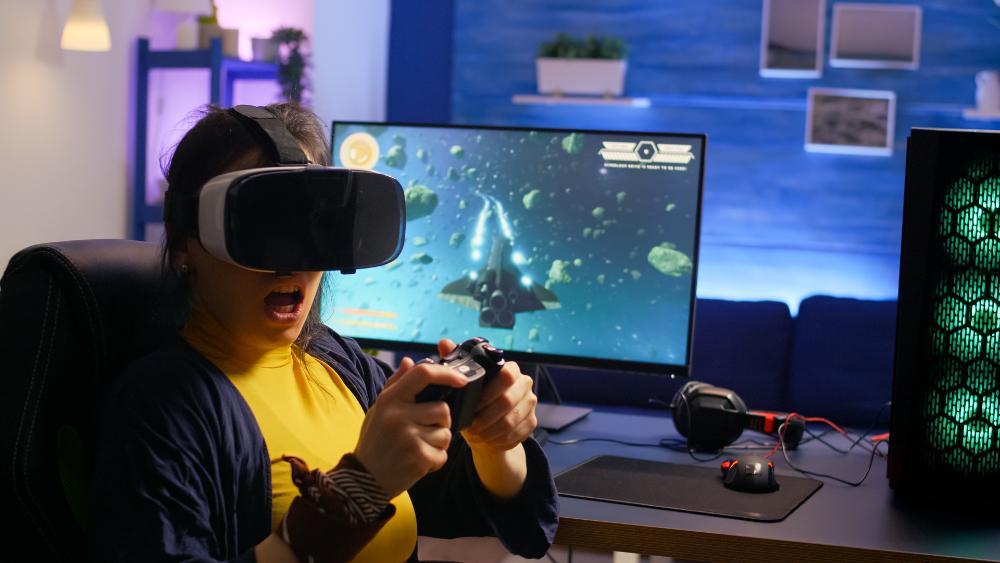The Journey of Gaming Through the Decades and its Impact on Teens
9/12/2024

Over the years parents have expressed concerns that the time their teens spend on gaming can interfere with other aspects of their lives. They believe it can affect their health, and how they perform at school and replace interacting with others. They also fear exposure to violent and other inappropriate content. There are studies about the negative aspects of gaming but many other studies confirm its potential benefits. These include intellectual development, skill development, and social interaction. Teenage culture has shown the influence of gaming through the ages.

https://www.freepik.com/free-photo/retro-computer-desk-arrangement_37350422.htm
Broader impact on teens
Educational opportunities
Gaming has many potential intellectual benefits. It can help to develop skills such as problem-solving and critical thinking. Quick thinking and accuracy are also important. It can enhance memory and the ability to concentrate. Gamers have to change their strategies and actions to suit different circumstances. This encourages flexible and adaptive thinking. Many online learning courses today use game elements such as points, badges, and leaderboards. A little friendly competition helps to increase motivation.
Online assistance comes to the rescue in times when there’s too much workload. Edubirdie is a complementary online resource for boosting research and writing skills. Students can pay for research paper when in need and upgrade their knowledge and skills further in that extra time. On this site, students can communicate with the writer and express their requirements freely, such as what they need and what the final essay or research paper should look like. Academic help in college life holds great importance because of the constant pressure students face. Help from others is difficult to come by so paying a reasonable rate for high-quality papers is the best option.
Social and emotional effects
Gamers can create friendships and increase their confidence through gaming. They often play together in multiplayer games and have to know how to work as part of a team. Having common interests with other gamers helps them to make connections.
Teens need to learn how to manage their emotions in gaming. They can’t allow frustration or anger to throw them off their game. Gaming can have emotional benefits but it also has dangers. Some teens don’t know how to manage their gaming and allow it to manage them. Teens with this problem usually need to get help to manage it.
The early days of gaming (1970s and 1980s)
An important milestone in the early days of gaming was the development of Pong. This was a table-tennis-themed arcade video game made by Atari. Arcade machines began to pop up in bowling alleys, shopping malls, etc. They became a social hub for teens.
- In 1978 Space Invaders hit the market.
- In 1980 Pac-Man further drove growth.
- 1981 saw the release of Donkey Kong.
Atari released the Atari VCS in 1977 and the Atari 2600 was launched in 1980. With these home consoles, gamers were able to play games in their home environments.
Many companies began to develop video games for the market which just seemed to keep expanding. In 1983 market saturation caused a crash in the video game industry. The gaming industry was in need of a change.

The 1990s: The Golden Age
In 1993, the internet became part of the public domain. The early 1990s saw the release of fourth-generation 16-bit-era consoles. Microsoft released the Xbox Live online gaming platform in 2001. Nintendo were dominant in the handheld market with their Game Boy consoles.
Computer processors were far more powerful than earlier generations of consoles. This led to a new type of gaming that was less linear and more complex. The advent of 3D graphics and CD-ROM technology Improved game graphics and storytelling. Games like Super Mario 64 set new standards. Early computers also paved the way for multiplayer gaming.
The Online Era (2000s–2010s)
The release of Counter-Strike in 2000 and World of Warcraft in 2004 saw the development of global communities and social interactions around gaming.
The collaborative nature of multiplayer games meant teens could develop their teamwork and communication skills. Through online gaming platforms, they were able to connect with others all around the globe.
The mobile technology boom opened the door to new generations of gamers. With this came some new challenges. Having to manage toxicity and screen time was a consequence of the convenience and wider user base.
Modern Gaming (2010s–Present)
Modern gaming has become more inclusive and doesn’t appeal only to teens. Games depict many cultures, perspectives, and identities.
- Virtual reality (VR) and augmented reality (AR) are further blurring the lines between the virtual and real worlds and offering players immersive experiences.
- NPCs (non-playable characters) powered by AI enhance the depth of storytelling in games with realistic responses.
- The competitive nature of eSports is attracting millions of viewers. Professional gamers can make a lucrative career out of gaming.
Emerging technologies such as blockchain and virtual economies within games are revolutionizing in-game ownership and trading. New business models and opportunities are presenting themselves within the gaming ecosystem.
With the tremendous growth of gaming, concerns about its effect on mental health have come to the forefront again. Striking a balance between gaming and maintaining a healthy lifestyle is a constant topic of discussion. Initiatives to foster responsible gaming practices among teens are increasing.
Conclusion
Gaming has gone through a transformation since teens first started playing Pong in arcades. Today the impact of gaming has gone well beyond entertainment. It is a cultural phenomenon that is influencing education and shaping trends.
Further advances in technology such as streaming and cloud services hint at a future when gaming will be more accessible than ever. It’s impossible to know exactly how gaming will shape the next generation. Its ability to unite people of all kinds and adapt to change is likely to ensure it keeps having an impact for years to come.